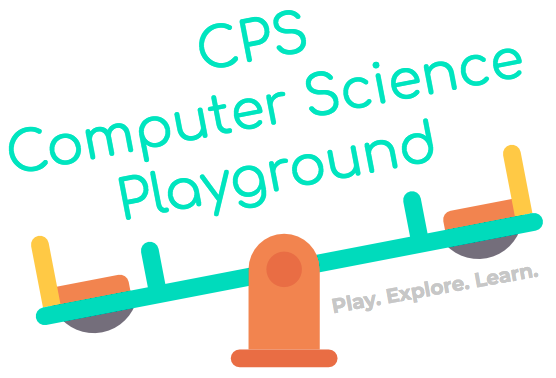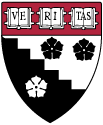Organizing the Cambridge Public School CS Playground

Last June, Cambridge Public Schools offered all sixth-grade students an opportunity to participate in a variety of computer science experiences in what they called a “CS Playground.” The event was formed in efforts to highlight their commitment to increasing Computer Science learning for ALL students.
Organizers designed the program around the following goals:
- Expose students to computer science concepts and ways of thinking
- Spark an interest in computer science topics for students of differing backgrounds
- Create connections among students, community members, and educators
At the event, which was hosted during the school day, Students spent two hours rotating through rooms with different types of computer science experiences. CPS used the analogy of a 'playground,' in the hopes that students would be able to self-select an activity in each room, socialize with peers and community partners, and be hands-on in their experiences with computing.
We reached out to organizers Gina Roughton and Ingrid Gustafson to learn more about the 'What, Why, and How' of the event, in hopes that their model could be shared and remixed by others. Here's what we learned:
Gina: I had a discussion with our superintendent about how to increase opportunities for Computer Science for ALL students. We talked about the Hour of Code model in December and how it’s accessible to teachers, discussed critical points in the K-12 scope when students should be exposed to computer science concepts, and reviewed the recently updated Massachusetts State Digital Literacy and Computer Science standards. These are two of the Guiding Principles from that updated standards framework we focused on when developing these events:
Guiding Principle 1: Learning
Digital Literacy and Computer Science ideas should be explored in ways that stimulate curiosity, create enjoyment, and develop depth of understanding.
Guiding Principle 2: Equity
All students should have a high-quality digital literacy and computer science program that prepares them for college and a career.
How did you decide on the structure?
Gina: Ingrid, myself and Liz Miller, an intern from the Harvard Graduate School of Education had a brainstorm session about what it could be and what the goals of the experience would be for students. We shared priorities such as having fun, being hands-on, and connecting with the community. We also met with Sharlene Yang, Cambridge STEAM Initiative Director, who has run several city/community events to gain insight on best practices to partner with community members.
We brought the framework to the Upper School principals to get their input on the goals, feasibility, and to garner support. That conversation solidified an offering to support 6th-grade students with a block of 2 hours in late June. Considering our capacity (at this point just 3 of us) we decided to host the events at each of the schools with a minimal ask of the teachers. The room themes came together over weeks of planning, fails, replanning, and ultimately asking for “all hands on deck” from the ICTS department.
How did you feel the event went overall?
Gina: Overall, we received positive feedback from all involved - teachers, community partners, principals, and most importantly students. The ICTS staff enjoyed working in new ways with the students. Many teachers commented on how engaged students were for the end of the year. Community partners were excited to connect with our students.
What is your advice for other educators who are interested in running a similar event?
Gina: Start early! We learned the hard way that when coordinating with community partners you need to ask months in advance to secure availability on their schedules, even if all the details aren’t finalized. Also, it was very evident that hands-on was key for engagement. For our students, hands-on meant more than just interacting with a computer. The highest rated activities involved opportunities for students to take apart and/or build, or interact with a robot :)
Digital Resources from Events
Ingrid: Here are some resources from the event! Remix them!
Cambridge CS Playground Google Site

